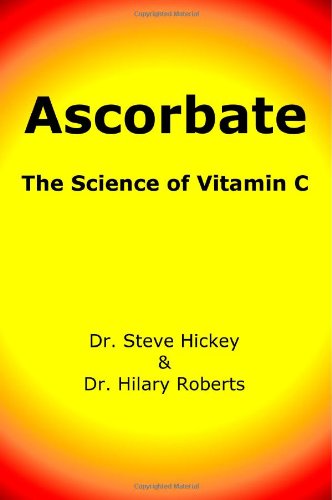Ascorbate: The Science of Vitamin C book download
Par martin michael le mardi, février 21 2017, 23:11 - Lien permanent
Ascorbate: The Science of Vitamin C. Steve Hickey Hilary Roberts

Ascorbate.The.Science.of.Vitamin.C.pdf
ISBN: 1411607244,9781411607248 | 264 pages | 7 Mb

Ascorbate: The Science of Vitamin C Steve Hickey Hilary Roberts
Publisher:
In accordance with other scientific reports and our present data suggest that activation of NF-κB is linked to cell death signaling in Jurkat and K562 cells [16]. "Vitamin C is essential in the human body to ensure healthy cell function, but humans have to get vitamin C, or ascorbate, from their diet, as our primate ancestors lost the ability to synthesise it in the body," says Dr William Laing, lead scientist on the study. New evidence comes out daily to substantiate what many researchers have said for years. To get your daily dose of vitamin C from just one potato. FutureDerm CE Caffeic includes 16% vitamin C, including 8% microencapsulated L-ascorbic acid and 8% tetrahexyldecyl ascorbate (also known as THA, or BVOSC). Yet, the precise pathway(s) by which VK3 and/or VC induce .. Accordingly, the use of vitamin K3 (VK3, also known as menadione [3]) and vitamin C (VC, also known as sodium ascorbate [4]) alone or in combination (VK3: VC [5]) is highly promising in cancer treatment. Scientists at Plant & Food Research are investigating how vitamin C is made in plants and have identified the. Http://www.rifeenergymedicine.com/vitaminc.html. Indeed, NF-κB transcribes pro-apoptotic genes such as p53. Most people take vitamin C to boost immunity. FutureDerm | Beauty From A Scientific Perspective. If there is any vitamin we have all heard about, it is vitamin C. For acne, however, vitamin C when it is used to keep immune responses in check. Vitamin C, otherwise called ascorbate, has been found to have a link with cancerous tumour growth, according to University of Otago researchers.